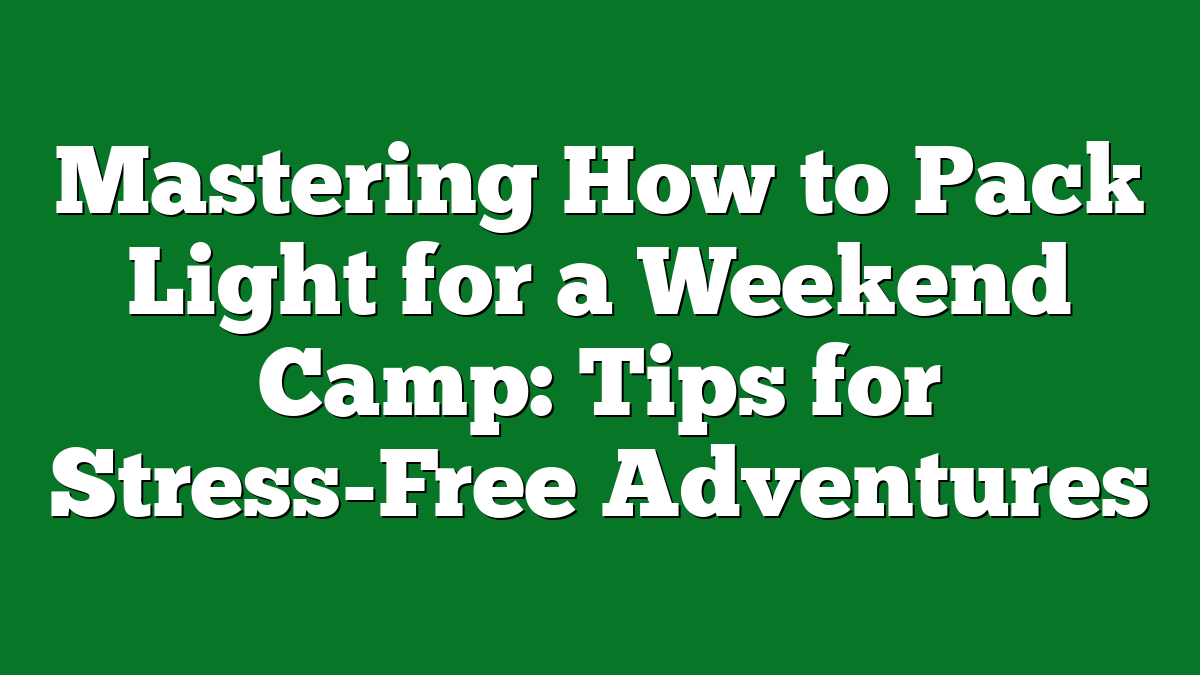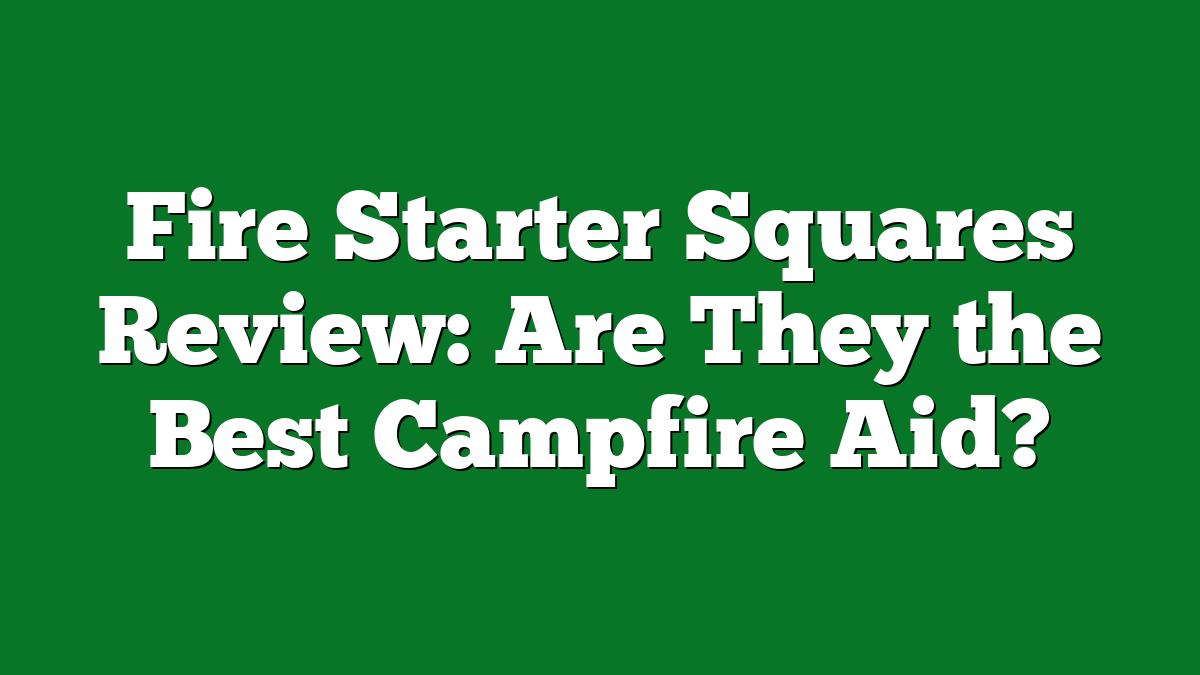Packing light for a weekend camp can feel like a daunting task, but it doesn’t have to be. I’ve learned that with a little planning and the right mindset, you can enjoy the great outdoors without lugging around a heavy backpack. It’s all about choosing the essentials and knowing what you can leave behind.
Understanding the Essentials
Packing light for a weekend camp centers on understanding what’s essential and differentiating it from what’s optional. I focus on selecting gear and clothing that support my adventures while minimizing weight.
Choosing the Right Gear
Choosing the right gear simplifies packing. I stick to essential camping items that serve multiple purposes:
- Tent: I opt for a lightweight, easy-to-set-up tent suitable for the season.
- Sleeping Bag: I choose a compact sleeping bag that’s rated for the temperatures I expect.
- Cooking Equipment: I take a small camp stove coupled with a few lightweight pots.
- Navigation Tools: I never forget my map, compass, or a GPS device, which are vital for exploring the wilderness.
- First Aid Kit: A basic first aid kit remains crucial for unexpected injuries.
Combining gear that offers versatility reduces weight significantly while keeping me prepared for different situations.
Selecting the Best Clothing
Selecting the best clothing for camping ensures comfort and protection. I prioritize the following:
- Base Layers: I wear moisture-wicking base layers to stay dry and comfortable.
- Insulating Layer: A lightweight fleece jacket provides warmth without bulk.
- Outer Layer: A waterproof jacket protects against rain and wind.
- Pants: I wear convertible pants that can switch between shorts and long pants, adapting to changing temperatures.
- Footwear: Supportive, waterproof hiking boots help me tackle various terrains effectively.
Selecting multifunctional clothing minimizes packing while keeping me equipped for varying weather and activities.
Packing Techniques
Packing light isn’t just a challenge; it’s an art. When I pack for a weekend camp, I focus on techniques that streamline what I carry while maximizing utility.
Utilizing Compression Bags
Using compression bags transforms bulky items into compact necessities. I pack my sleeping bag and extra clothing in these bags, reducing their size significantly. The compression helps to fit more into smaller spaces, allowing me to make the most of my backpack’s capacity. It’s a simple yet effective way to keep my gear organized and easy to access.
Rolling versus Folding Clothes
Rolling my clothes instead of folding them creates more space and minimizes wrinkles. I roll each piece tightly and nest them within my pack, making it easier to find what I need without unpacking everything. Rolling clothes helps me utilize every inch of my backpack efficiently. Plus, it allows me to quickly spot missing items, keeping my camp prep smooth and focused.
Food and Cooking Supplies
Packing light for food and cooking supplies is crucial for a successful weekend campout. I focus on simplicity and efficiency, ensuring I enjoy my meals without adding unnecessary weight to my backpack.
Lightweight Cooking Solutions
I prefer portable cooking options like a small camp stove or a compact portable grill. These pieces of equipment not only save space but also allow for quick meal preparation. I often use lightweight cookware, such as titanium pots and pans, which offer durability and low weight. Collapsible utensils and plates also help reduce bulk and make cleanup a breeze. For those comfortable with open fires, bringing a durable grate can make fire cooking easier.
Planning Easy Meals
Meal planning plays a massive role in keeping my pack light. I choose non-perishable items that require minimal preparation, such as freeze-dried meals, instant oatmeal, and nut butter packets. I combine these with fresh fruits or veggies that don’t spoil quickly. For protein, I rely on vacuum-sealed options, like jerky or canned tuna. Pre-portioning snacks, like trail mix or granola bars, keeps munchies accessible and prevents overpacking. Emphasizing one-pot meals simplifies the cooking process, allowing for easy cleanup with minimal gear. Planning ahead ensures I pack just enough to keep me fueled without sacrificing taste.
Organizing Your Pack
Organizing your pack streamlines your camping experience, making it easy to find what you need when you need it. A few simple techniques can help you pack efficiently and effectively.
Creating a Packing List
Creating a packing list simplifies the preparation process and ensures I don’t forget essential items. I break my list into categories for better organization:
- Shelter and Sleeping: Lightweight tent, compact sleeping bag, sleeping pad.
- Clothing: Moisture-wicking base layers, insulating layers, waterproof jacket, and a pair of supportive footwear.
- Food and Cooking: Portable camp stove, lightweight cookware, pre-portioned snacks, and freeze-dried meals.
- Navigation and Safety: Map, compass, basic first aid kit, and multi-tool.
Reviewing my list before I pack helps eliminate unnecessary items, ensuring a lighter load while still bringing everything I need.
Distributing Weight Effectively
Distributing weight effectively in my pack makes carrying it more manageable. I use these strategies for maximum comfort:
- Pack Heavier Items Close to My Back: I place sleeping bags and food closer to my back for better weight distribution, reducing strain on my shoulders.
- Balance the Load: I keep heavier items balanced on both sides of the pack to maintain stability while walking.
- Use External Straps for Additional Gear: I secure tent poles or trekking poles on the outside, keeping the inside uncluttered.
Following these guidelines helps me maintain energy and endurance on long hikes, making for a more enjoyable camping trip.
Conclusion
Packing light for a weekend camp doesn’t have to be a daunting task. With a little planning and the right mindset I can enjoy the great outdoors without feeling weighed down. By focusing on essentials and using smart packing techniques I can maximize space and minimize stress.
Choosing versatile clothing and lightweight gear makes a world of difference. Plus organizing my pack ensures I can easily access what I need when I need it.
Ultimately it’s all about enjoying the experience and embracing the adventure. So the next time I head out for a camping trip I’ll remember that less really can be more. Happy camping!











